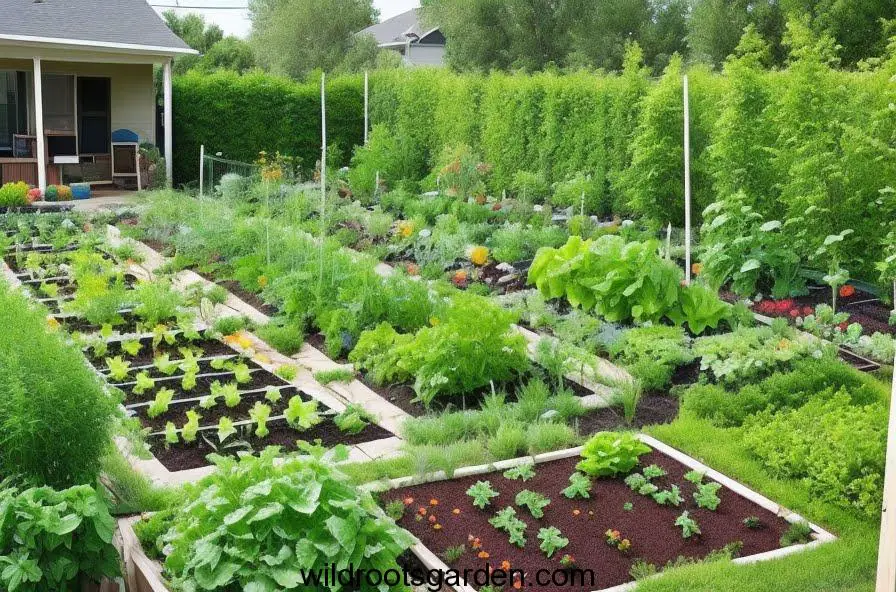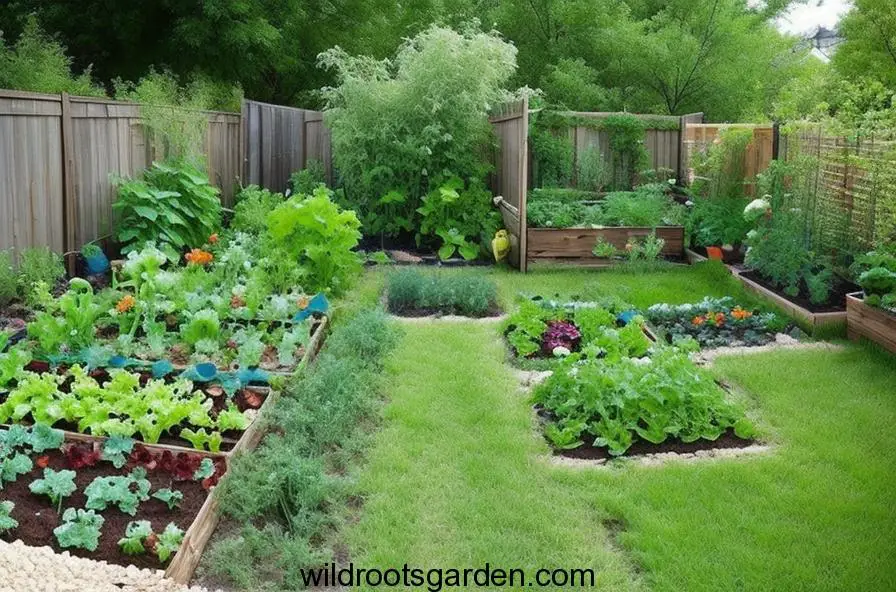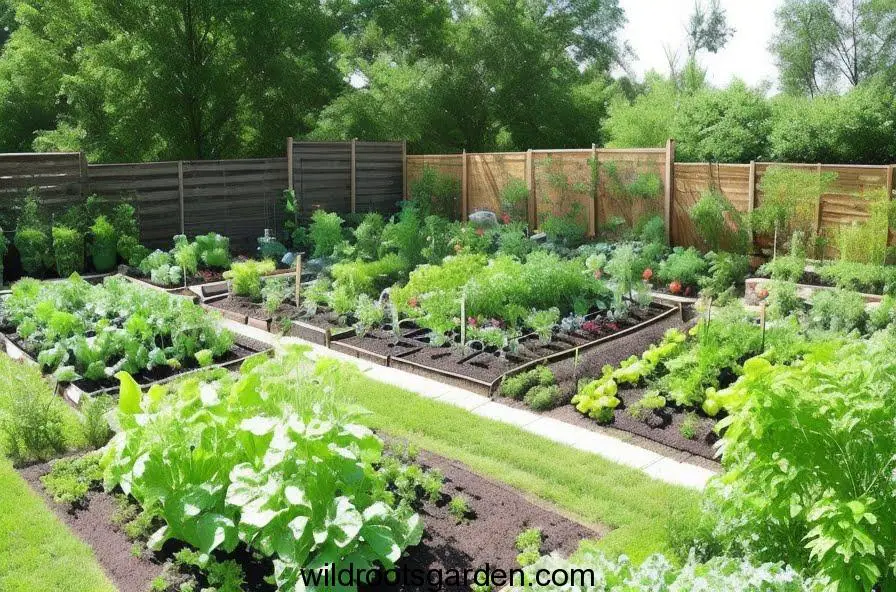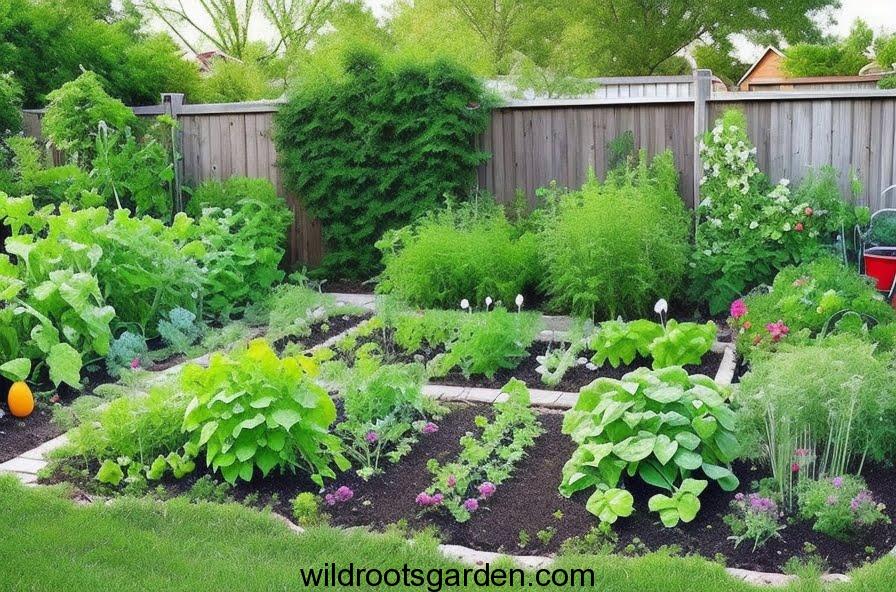Illegal Front Yard Vegetable Garden. Welcome to our thorough tutorial on the subject of prohibited vegetable gardens in front yards. This essay will examine the difficulties experienced by gardeners who decide to grow their veggies in their front yards, go through the legality issues, and offer insightful advice for those who want to create their own front yard edible sanctuary. Now grab a pair of gardening gloves and let’s get started!

The Beauty and Bounty of Front Yard Vegetable Gardens
Vegetable gardens in the front garden have grown in popularity recently as more people adopt the concepts of sustainability and self-sufficiency. These gardens give a fresh and wholesome food source right outside your door in addition to adding a touch of natural beauty to the community. Gardeners and their families enjoy the pleasant experience of being able to go outside and collect their own food.
Understanding the Legal Conundrum
Front-yard vegetable gardens may seem ideal, but it’s important to understand the legal ramifications and potential difficulties that come with them. Local laws and homeowners’ association (HOA) regulations may limit or outright forbid the growing of edible plants in front yards in some localities. This disparity between individual freedom and social norms has spurred discussions and prompted inquiries regarding property rights and the right to cultivate one’s own food.
The Reasons Behind the Restrictions
- Neighborhood Aesthetics: One of the primary concerns raised by opponents of front-yard vegetable gardens is the impact they may have on neighborhood aesthetics. Some argue that vegetable gardens can be visually unappealing and may lower property values.
- Zoning Regulations: Zoning regulations play a crucial role in determining land use within a specific area. Certain zones are designated for residential purposes, and growing food crops in front yards might be seen as a violation of these regulations.
- Property Maintenance: Another reason for the restrictions is the concern that front-yard vegetable gardens may lead to neglected or unkempt properties. Critics worry that homeowners might neglect the overall maintenance of their yards, which could have a negative impact on the neighborhood’s appearance.
- Pest and Disease Control: Opponents also express concerns about potential pest and disease problems that could arise from front-yard vegetable gardens. They argue that these gardens may attract pests, such as rodents or insects, which could subsequently affect neighboring properties.

Navigating the Legal Landscape
If you find yourself drawn to the idea of an illegal front yard vegetable garden, it is crucial to navigate the legal landscape wisely. Here are some suggestions to consider:
- Research Local Regulations: Start by researching the local regulations, zoning ordinances, and HOA rules governing your area. Understanding the specific restrictions in place will help you make informed decisions about your garden.
- Seek Permission or Variance: If your local regulations prohibit front-yard vegetable gardens, consider reaching out to your local authorities or HOA to request permission or a variance. Explain the benefits of such gardens and how they can contribute to sustainable living and community well-being.
- Engage with the Community: Address concerns raised by neighbors or community members regarding aesthetics or property values. Organize neighborhood meetings, create visual presentations showcasing the beauty of well-maintained front yard vegetable gardens, and educate others about their benefits.
- Consider Alternative Gardening Methods: If growing vegetables in the front yard is not an option, explore alternative gardening methods, such as container gardening, vertical gardening, or community gardens. These approaches can still provide you with the joy of growing your own food while complying with local regulations.

FAQs
Can I be fined for having an illegal front yard vegetable garden?
Yes, in some areas, homeowners can face fines or penalties for violating local regulations or HOA rules. It is crucial to familiarize yourself with the specific regulations in your area to avoid any legal consequences.
How can I convince my neighbors that a front yard vegetable garden is a good idea?
Engaging in open and respectful communication with your neighbors is essential. Share information about the benefits of front-yard vegetable gardens, such as promoting sustainable living, improving access to fresh produce, and fostering a sense of community. Show them examples of aesthetically pleasing gardens and offer to address any concerns they may have.
Are there any alternative gardening methods I can consider if front-yard gardening is prohibited?
Yes, if front-yard gardening is not permitted in your area, there are alternative gardening methods you can explore. Container gardening, vertical gardening, and joining community gardens are excellent options to continue growing your own food while complying with local regulations.
How can I maintain the aesthetics of my front yard vegetable garden?
To maintain the aesthetics of your front yard vegetable garden, consider incorporating attractive landscaping elements, such as colorful flowers, decorative borders, and well-maintained pathways. Design your garden in a visually pleasing and organized manner, ensuring it complements the overall look of your property.
Can I get involved in changing local regulations to allow front-yard vegetable gardens?
Absolutely! Engaging in grassroots efforts to change local regulations is a powerful way to advocate for front-yard vegetable gardens. Reach out to local community organizations, attend city council meetings, and collaborate with like-minded individuals to raise awareness about the benefits of these gardens and work towards policy changes.
Are there any resources available to help me navigate the legal landscape?
Yes, there are resources available to help you navigate the legal landscape. Local gardening clubs, online forums, and community organizations focused on sustainable living can provide guidance and support. Additionally, consulting with a lawyer familiar with property and zoning laws can offer valuable insights tailored to your specific situation.
Conclusion
Notwithstanding its legal impossibility, having a front yard vegetable garden gives prospects for self-sufficiency, ecological living, and community involvement. You may negotiate the legal system and indulge your passion for a green thumb by learning about local laws, interacting with your neighbors and the police, and researching alternate gardening techniques. Remember that having a vegetable garden in your front yard can help your health as well as motivate and inform people in your neighborhood about the advantages of growing your own food.

